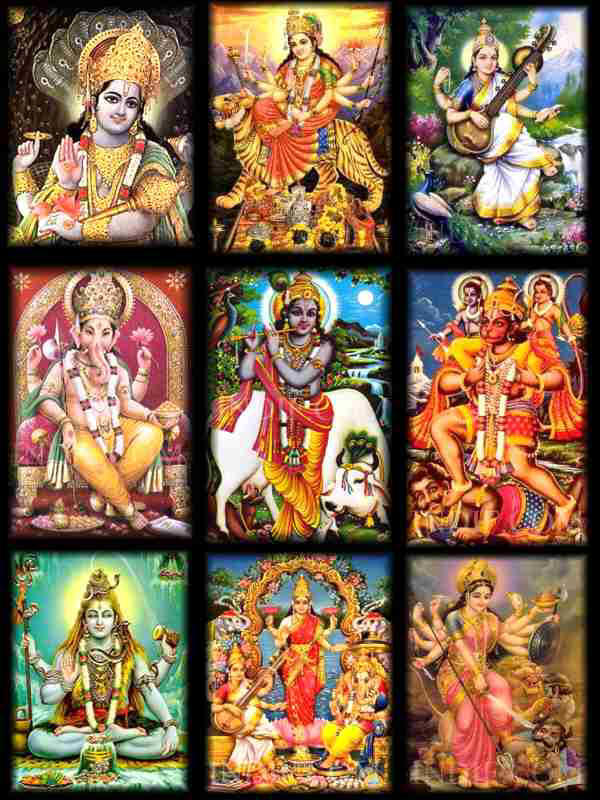Then surely the divine qualities would belong to the 'nature' (for want of a better term) they share in common (the universal aspect), rather than to the individual aspect of the equals in association?Why? It could be an association of equals ...
Where the crucial distinction lies, it seems to me, is in the 'I am'? It seems to me that no theology/metaphysic has as its Supreme Principle anything other than the One, even though that One be monad and, simultaneously, henad.
The same could be said, to use an analogy I am conversant with, of the Doctrine of the Trinity. Here we have what appears to be three Gods, and a 'simple' of 'naive' expression of the doctrine could be accused of tritheism, which Scripture expressly refutes: "He that seeth me seeth the Father also" (John 14:9), "I am in the Father, and the Father in me" (John 14:11).
If I may try and transpose your terms into a Christian context:
You have created a problem for yourself by accepting God and divine... I would answer that rather assumes a problem, and how I define God and 'divine'.
Hinduism (advaita) avoided the problem of God and divine by not compulsorily making Brahman into a God, but only that which constitutes the universe and all things in it ... I would respond by saying that there is the same distinction between Brahman and Brahma in Christianity.
A simple distinction can be held in that between Father and Son. Father/Brahman in the Supreme Principle, Son/Brahma is the creator God, and this is affirmed explicitly in Scripture:
(The Son/Brahma) Who is the image of the invisible God (Father/Brahman), the firstborn (Ultimate Principle) of every creature: For in him (Son/Brahma) were all things created in heaven and on earth, visible and invisible ... all things were created by him and in him. And he is before all (as Supreme Principle), and by him all things consist ... Because in him (Son/Brahma), it hath well pleased the Father(/Brahman), that all fullness should dwell (that is, there is nothing the Father/Brahman is that the Son/Brahma is not — other than external relation of the Supreme Principle in Itself and that same Principle realised in all things...
... ('Sarve khalu idam Brahma' – all things here are Brahman, 'Tat twam asi' - You are that, 'Eko Brahma, Dwiteeyo nasti' - Brahman is one, there is no second, 'Ayam atma Brahman' - This self is Brahman, 'Aham Brahmasmi' - I am Brahman, 'So Aham' - I too am the same). I could refer to Scripture to offer the same declarations in its own terms, the 'I am that I am' of Moses, or the 'I am' (Gk: ego eimi) of the Son.
The doctrine of 'non-dualism' is present in Christianity, expressed in apophasis, and can be traced from Scripture onwards. Although it was preached famously in Eckhart, he was building upon a long and venerable tradition of non-dualism within the tradition.
In more recent times there has been Christianity and the Doctrine of Non-Dualism an anonymous work by 'A Monk of the West', as well as the works of the likes of Bede Griffiths, among others.

